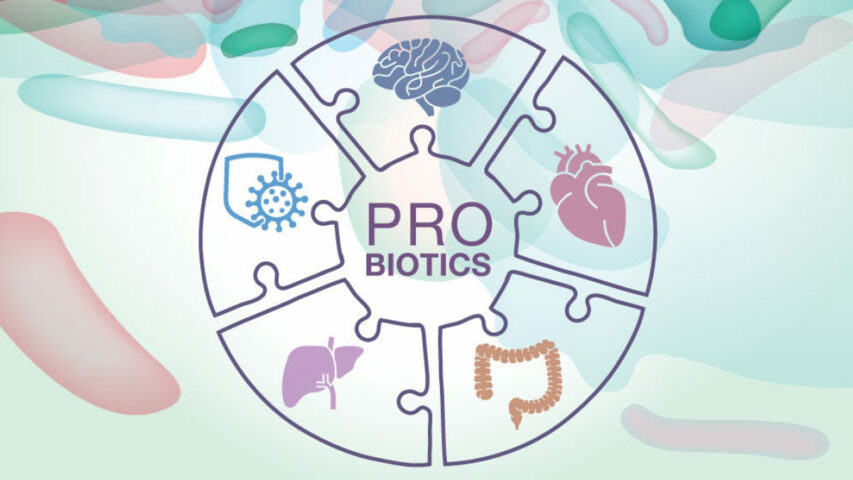- Have any questions? Contact us!
- info@dr-rath-foundation.org

International Science Journal Publishes Article Calling For COVID-19 mRNA Vaccines to be Reclassified as Gene Therapies
July 7, 2023
Global Diabetes Cases Expected To Soar From 529 Million To 1.3 Billion By 2050
July 14, 2023Probiotics: Health Essentials

Humans have more microbes in and on their bodies than they have cells. The human digestive system contains trillions of bacteria, viruses, and fungi, for example. Most of the bacteria in the gut are beneficial. Collectively they are known as the ‘gut microbiome’ or ‘gut flora’ and are essential for a number of physiological functions that keep us healthy.
The gut microbiome is now considered as one of the organs in the human body. Just like all of our other organs it should therefore be taken care of. Probiotics are the supplemental forms of healthy bacterial colonies that are used to replenish our gut microbes. It is important to have a balanced bacterial population in the digestive system. Any imbalance in the digestive microbial environment is known as ‘dysbiosis.’
A modern diet containing meat, fats, and refined sugar has a very low fiber content that distorts a healthy gut microbiome. This can be an underlying cause of obesity, inflammation, and many chronic metabolic diseases such as high cholesterol, high blood pressure, and high blood sugar. Other indicators of an unhealthy gut flora include frequent digestive complaints, heartburn, bloating, fatigue, sluggishness, sugar cravings, irritable bowel syndrome, Crohn’s disease, inflammatory bowel disease, autoimmune diseases (such as allergies, asthma, rheumatoid arthritis, and thyroid issues), migraine headaches, skin problems such as psoriasis, depression, anxiety, as well as sleep and mood disorders.
Probiotic bacteria not only contribute to the maintenance and recovery of healthy gut flora; they also repair the connective tissue of the intestinal wall and improve the intestinal barrier to prevent infections. Natural sources of probiotic bacteria include plain cultured yogurt, cheeses, and fermented foods such as sourdough, sauerkraut, kimchi, and kombucha.
Gut microbes help in the digestion of food, the absorption of nutrients, the synthesis of certain B vitamins and vitamin K, and also provide support for healthy immunity. Additionally, healthy gut flora forms an important part of the gut-brain axis, which is important for mental health and cognition.
The gut microbiome starts developing in the digestive system right from birth and is constantly changing and adapting in order to maintain optimum intestinal and overall health. It varies from person to person and can be depleted due to genetic makeup, diet, a sedentary lifestyle, alcohol consumption, smoking, antibiotics, painkillers, statins and most other oral medicines, mental stress, aging, and environmental pollutants.
Consumption of a plant-based diet with abundant dietary fiber and complex carbohydrates is important for supporting the growth of healthy colonic bacteria. Vegetables, fruits, whole grains, and legumes act as food for the gut microbes. The compounds produced during digestion of fibrous foods, such as short-chain fatty acids (e.g., butyrate), are the major anti-inflammatory agents in the colon. Due to this property of fibers to help in maintaining healthy gut bacteria, dietary fibers are known as ‘prebiotics.’
On the other hand, probiotic supplements contain very specific combinations of bacteria. The most commonly used, with the maximum health benefits, are the Lactobacillus and Bifidobacterium species. When choosing a probiotic supplement, it is important to pay attention to the bacterial strains and number of colonies it contains, since they need to pass safely through the stomach acid and reach the colon in order to be most effective. Having a healthy gut microbiome is the key to long-term health!



